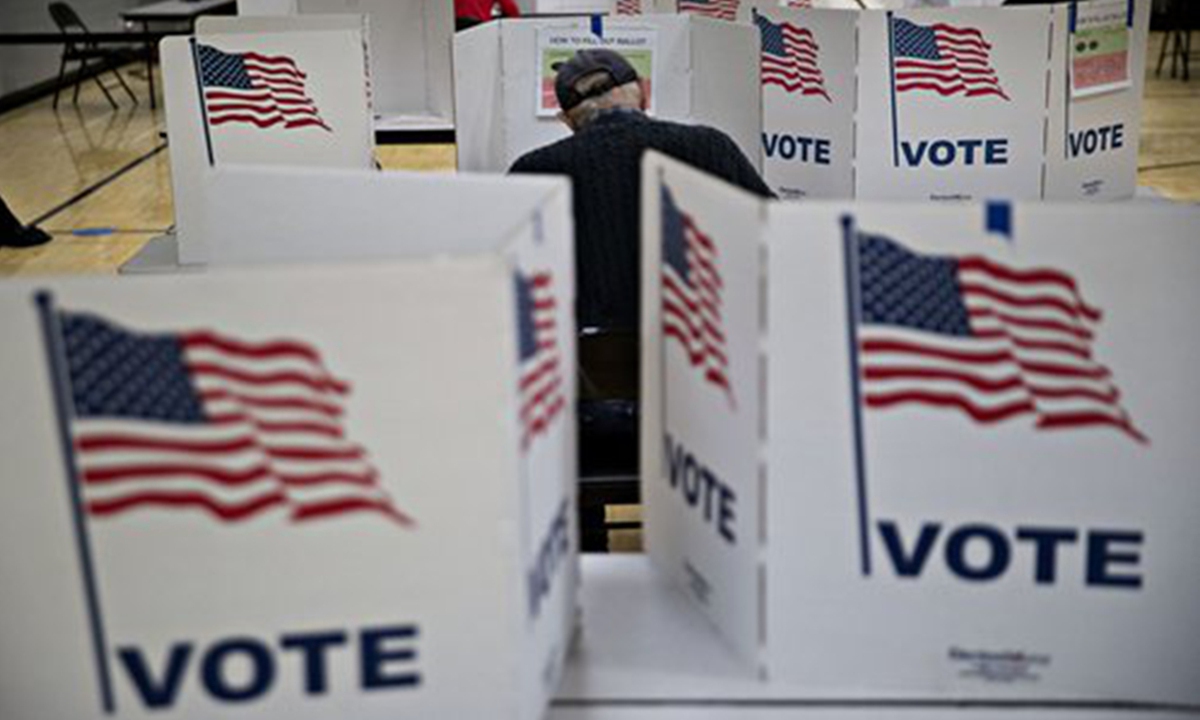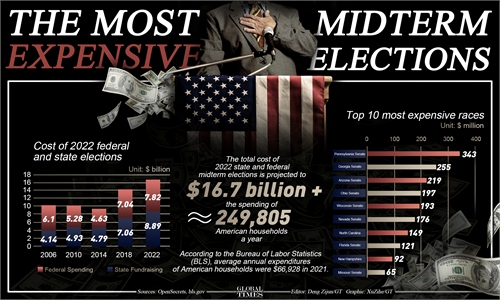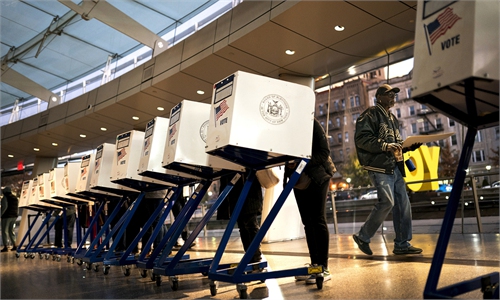
Photo: VCG
Through the title of his book The Selling of the President, Joe McGinniss sharply reveals the nature of the US presidential elections. When you are selling something, you always have to advertise it. You have to attract people's attention and make them like it. "Politics is just like show business," as former US president Ronald Reagan put it.
It seems that the tricks that work so well in the entertainment industry can also be applied to the US presidential elections - the young over the old, the beautiful and handsome over the plain-looking, the articulate over the reticent, the rich over the poor, the senseless over the intelligent. Rather than wisdom, experience, ability or proposals, candidates with more acting talent, greater public attention, and higher exposure tend to win.
The first televised debate between John F. Kennedy and Richard Nixon in 1960 had already shifted the audience's attention from understanding the candidates' political views to watching the image on the television screen. There was no doubt that the sunny and energetic Kennedy soundly defeated the old-fashioned and nervous Nixon. Since then, presidential races have become image contests. The campaign team has to design, package, advertise the candidate's image, and sell it to voters. In the 2016 presidential campaign, the focus was more on the color and style of Hillary's outfit and Trump's blond hair. On an episode of "The Jimmy Show," Trump had Jimmy Fallon touch his hair to prove it was not a wig.
"Indeed, we may have reached the point where cosmetics has replaced ideology as the field of expertise over which a politician must have competent control," Neil Postman wrote in Amusing Ourselves to Death.
The public is more interested in the private lives and scandals of politicians than with esoteric political issues. Since the media and audience both need entertainment, American politicians also readily accept innocuous ridicule. Gossip has never been absent from the Trump campaign. Whether it is his wives, his daughters, his unique accent and gestures or his bold words on Twitter, the entertainment element has always been there. In any case, Trump managed to gain more attention. The essence of getting votes is to entertain the public.
In order to win the election, candidates also smear and belittle their opponents. Statistics show that during the 2012 presidential election, 90 percent of election advertisements were used to discredit opponents. In each of Trump's televised debates with Hillary and Biden, the opponents' "dirty laundry" has always been a hot topic. It seems to give the audience infinite joy to watch the embarrassed expressions of politicians who have been exposed. This dramatic, climactic plot is key to capturing the attention of voters.
Television advertising is an indispensable tool in the campaign and has become the most essential symbol of political discourse in the US. Normally, political advertising accounts for 50-75 percent of campaign funds, according to Lynda Lee Kaid, a professor at the University of Florida. Data shows that Joe Biden spent over $1 billion on advertising, much more than any presidential candidate in the US history. In 1959, Kennedy wrote in an essay about television and elections for Reader's Digest: It is a medium which lends itself to manipulation, exploitation and gimmicks. It can be abused by demagogues, by appeals to emotion and prejudice and ignorance.
Political entertainment is dismantling the electoral politics that Americans are proud of. Election campaigns become shows of favor-currying, politicians act like stars, elections turn into national carnivals. The methods that politicians use to attract voters have little to do with solving real problems.
American politics is consumed by nonsensical farce and entertainment, and cannot focus on things that really matter. As Neil Postman said, "Our politics … has been transformed into congenial adjunct of show business. The result is that we are a people on the verge of amusing ourselves to death."
The author is a commentator on international affairs, writing regularly for CGTN, Global Times, Xinhua News Agency, etc. He can be reached at xinping604@gmail.com


